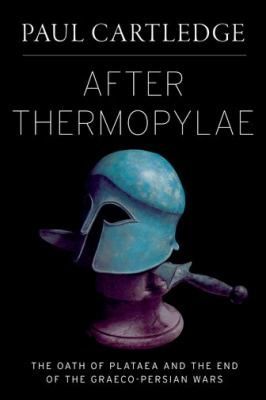
After Thermopylae The Oath of Plataea and the End of the Graeco-Persian Wars
In After Thermopylae, Paul Cartledge masterfully reopens one of the great puzzles of ancient Greece to discover, as much as possible, what happened on the field of battle and, just as important, what happened to its memory. Part of the answer to these questions, Cartledge argues, can be found in a little-known oath reputedly sworn by the leaders of Athens, Sparta, and several other Greek city-states prior to the battle-the Oath of Plataea. Through an analysis of this oath, Cartledge provides a wealth of insight into ancient Greek culture. He shows, for example, that when the Athenians and Spartans were not fighting the Persians they were fighting themselves, including a propaganda war for control of the memory of Greece's defeat of the Persians. This helps explain why today we readily remember the Athenian-led victories at Marathon and Salamis but not Sparta's victory at Plataea. Indeed, the Oath illuminates Greek anxieties over historical memory and over the Athens-Sparta rivalry, which would erupt fifty years after Plataea in the Peloponnesian War.